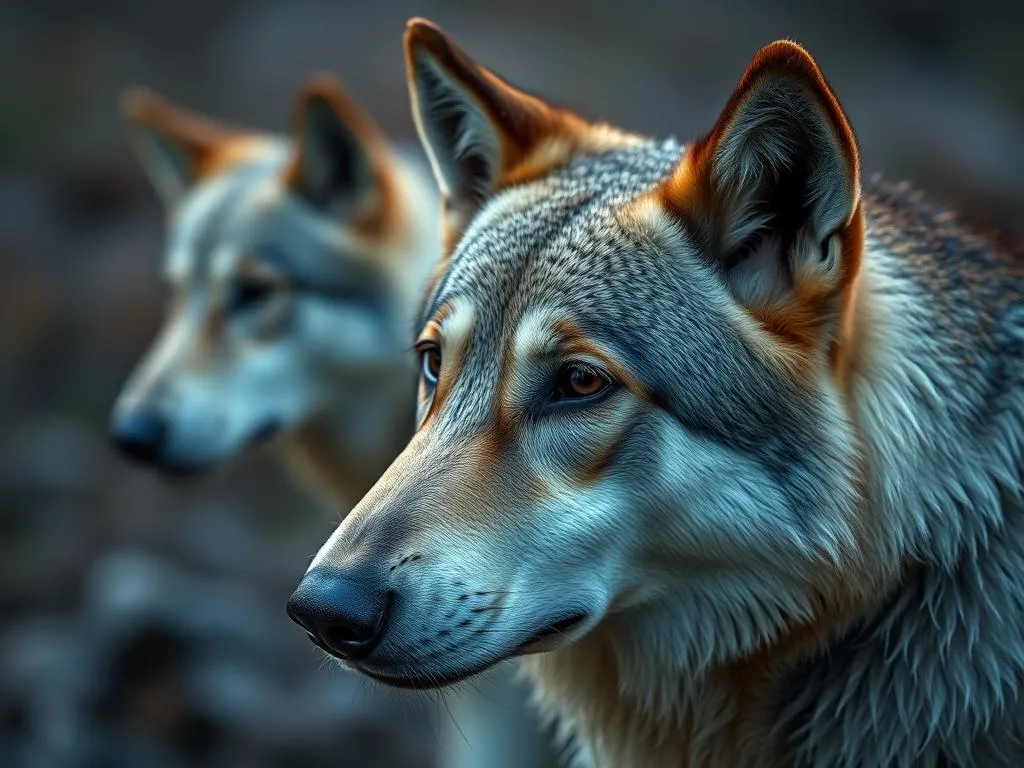
Understanding the origins of our beloved canine companions is a fascinating journey through time and science. The common belief that all dogs come from wolves is often taken for granted, but the reality is much more intricate. This article delves into the origins of dogs, their relationship with wolves, and the implications of their ancestry for breeding, training, and behavior.
The Ancestry of Dogs
Evolutionary Background
Canines are a diverse group, and their evolution is a remarkable story that dates back millions of years. The family Canidae, which includes wolves, foxes, and domestic dogs, began evolving from early canid ancestors around 40 million years ago. This evolutionary path led to the emergence of various canid species, culminating in the domestication of dogs roughly 15,000 to 30,000 years ago.
While dogs and wolves share a common ancestor, the divergence between the two species occurred as early as 15,000 years ago, when humans began to domesticate wolves for companionship and utility. This led to a variety of traits in dogs that differ significantly from those of their wild relatives.
The Wolf-Dog Connection
The genetic relationship between dogs and gray wolves is undeniable. Studies have shown that domestic dogs share approximately 98.8% of their DNA with wolves. This genetic closeness indicates that dogs are not merely descendants of wolves but rather their close relatives. The concept of domestication plays a pivotal role in this relationship.
Domestication is the process through which humans selectively bred wolves that exhibited traits favorable for companionship, hunting, and herding. Over generations, the traits that made these animals more suitable for living alongside humans became dominant, resulting in the diverse breeds we see today.
Scientific Evidence
Genetic Studies
Recent advances in genetic research have shed light on the ancestry of dogs. Mitochondrial DNA studies reveal that the domestic dog’s maternal lineage can be traced back to several populations of wolves. Additionally, nuclear DNA comparisons indicate that dogs have undergone significant genetic divergence from wolves due to domestication and selective breeding.
These genetic studies highlight that while all dogs come from wolves, the domestication process has led to distinct differences that set domestic dogs apart from their wild ancestors. The variations in behavior, physical characteristics, and even health issues are all influenced by this divergence.
Archaeological Findings
Archaeological evidence supports the connection between dogs and wolves. Excavations at sites such as Bonn-Oberkassel in Germany and Zhokhov Island in Siberia have uncovered ancient dog remains that show both wolf-like and distinct domestic traits. These findings suggest that dogs were living alongside humans as early as 14,000 years ago, indicating a long history of companionship.
The characteristics of these ancient dogs often reveal a blend of traits that hint at their wolf ancestry while also showcasing the early signs of domestication, such as a smaller size and changes in skull shape.
Evolutionary Theories
Several theories have emerged regarding the domestication of dogs, with the Multiple Origins theory gaining traction in recent years. This theory posits that dogs were domesticated from various populations of wolves across different regions, rather than a single event. This could explain the vast diversity seen in dog breeds today.
Alternative theories suggest that dogs might have originated from other canids, such as jackals or coyotes, or that domestication involved complex interactions among multiple canid species. Each theory highlights the multifaceted nature of dog ancestry.
Behavioral Differences
Instincts and Social Behavior
One of the most intriguing aspects of the dog-wolf relationship is the difference in social structures. Wolves exhibit a pack mentality, relying on complex social hierarchies for survival. In contrast, domestic dogs have adapted to live in human environments, leading to variations in social behavior.
Dogs tend to have a more flexible social structure, allowing them to form bonds with humans and other animals. Their hunting behavior also differs significantly. While wolves are skilled hunters reliant on teamwork, many domestic dogs have retained only vestiges of this instinct, often preferring interaction and play over actual hunting.
Impact of Domestication
The process of domestication has profoundly impacted dog behavior. Domesticated dogs have become more reliant on humans for social interaction and guidance, leading to behavioral traits unique to domestic breeds. This includes a wide range of vocalizations, playful tendencies, and a desire for companionship.
Human interaction has also played a crucial role in shaping dog behavior. Dogs have evolved to understand human cues and emotions far better than their wild ancestors. This heightened sensitivity to human behavior is a significant factor in why dogs are often seen as man’s best friend.
Misconceptions and Myths
Common Misconceptions
Despite the wealth of information available, many misconceptions persist regarding the relationship between dogs and wolves. One prevalent myth is that dogs behave just like wolves. While they share certain instincts, the domestication process has led to significant behavioral differences that should not be overlooked.
For example, the concept of dominance in dog training often draws from wolf behavior, but studies have shown that domestic dogs do not necessarily operate under the same social structures as wolves. Understanding these differences is crucial for effective dog training and ownership.
The Role of Media and Culture
Media and popular culture have also contributed to misconceptions about dogs and wolves. Movies and literature often romanticize the relationship between the two, portraying wolves as noble creatures and dogs as their lesser counterparts. This portrayal can lead to an oversimplified view of the complex relationship between dogs and wolves.
These cultural narratives can influence public perception, leading to misunderstandings about dog behavior and breeding practices. Recognizing the impact of media on our understanding of canine ancestry is essential for fostering a more accurate appreciation of dogs.
The Future of Dogs and Wolves
Conservation and Ethics
As we explore the origins of dogs, it is vital to consider the current state of wolf populations and the ethical implications of breeding dogs with wolf-like traits. Many wolf species are endangered due to habitat loss and human conflict. Conservation efforts aim to protect these majestic animals while preserving their natural habitats.
Breeding dogs with wolf-like characteristics can raise ethical concerns. While some may view these hybrids as desirable, they often come with behavioral challenges that may not be suitable for the average pet owner. Understanding the complexities of dog ancestry can guide responsible breeding practices and promote the welfare of both domestic dogs and wild wolves.
The Role of Dogs in Human Society
The role of dogs in human society has evolved dramatically over the years. From hunting and herding companions to therapy animals and family pets, dogs have become integral to our lives. Understanding their ancestry can enhance our appreciation for the diverse roles dogs play in our communities.
Recognizing the shared history between dogs and wolves helps foster a deeper connection with our four-legged friends. By understanding their needs and behaviors, we can provide better care, training, and companionship.
Conclusion
The belief that all dogs come from wolves is rooted in a complex tapestry of evolution, domestication, and cultural narratives. While dogs and wolves share a common ancestry, their paths diverged significantly through the processes of domestication and selective breeding.
Understanding this relationship is crucial for responsible dog ownership, training, and breeding practices. By appreciating the intricate history of dogs, we can foster a deeper connection with them and ensure their well-being in our lives.
As we continue to learn about the origins and behaviors of our canine companions, it’s essential to approach dog ownership with knowledge and respect for their unique histories. Embracing the complexities of dog ancestry not only enriches our understanding but also enhances the bond we share with these incredible animals.









